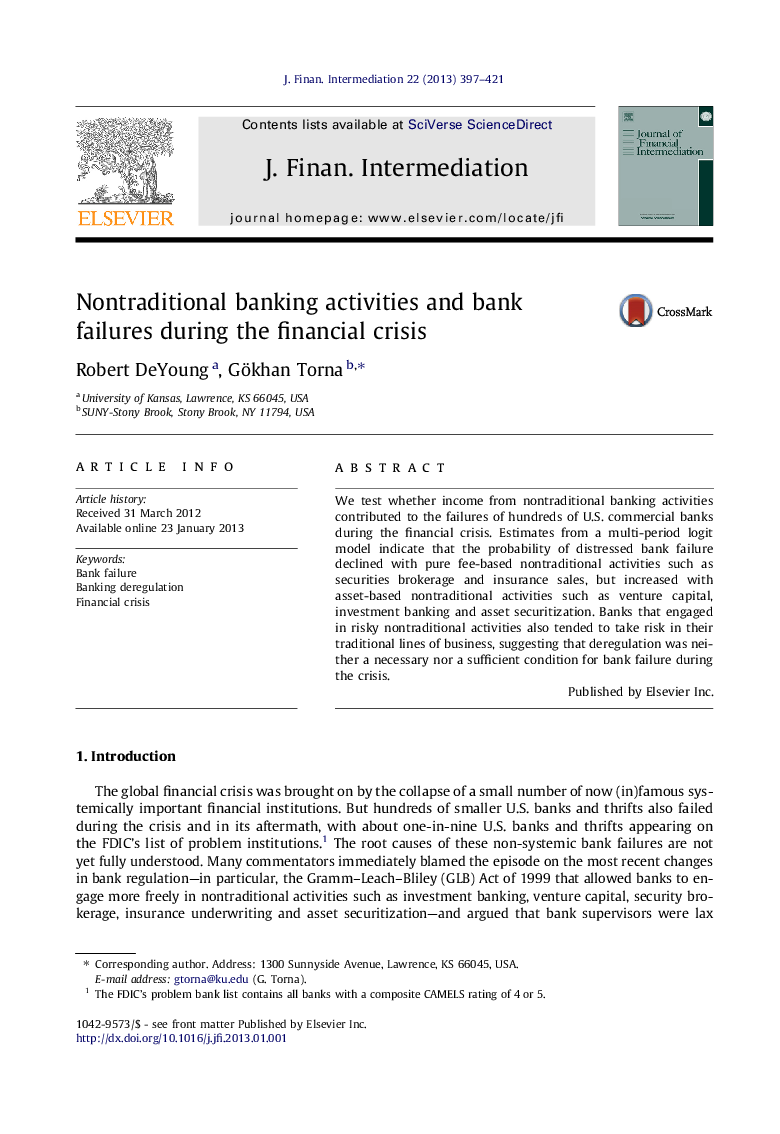| Article ID | Journal | Published Year | Pages | File Type |
|---|---|---|---|---|
| 960680 | Journal of Financial Intermediation | 2013 | 25 Pages |
Abstract
We test whether income from nontraditional banking activities contributed to the failures of hundreds of U.S. commercial banks during the financial crisis. Estimates from a multi-period logit model indicate that the probability of distressed bank failure declined with pure fee-based nontraditional activities such as securities brokerage and insurance sales, but increased with asset-based nontraditional activities such as venture capital, investment banking and asset securitization. Banks that engaged in risky nontraditional activities also tended to take risk in their traditional lines of business, suggesting that deregulation was neither a necessary nor a sufficient condition for bank failure during the crisis.
Related Topics
Social Sciences and Humanities
Business, Management and Accounting
Strategy and Management
Authors
Robert DeYoung, Gökhan Torna,
